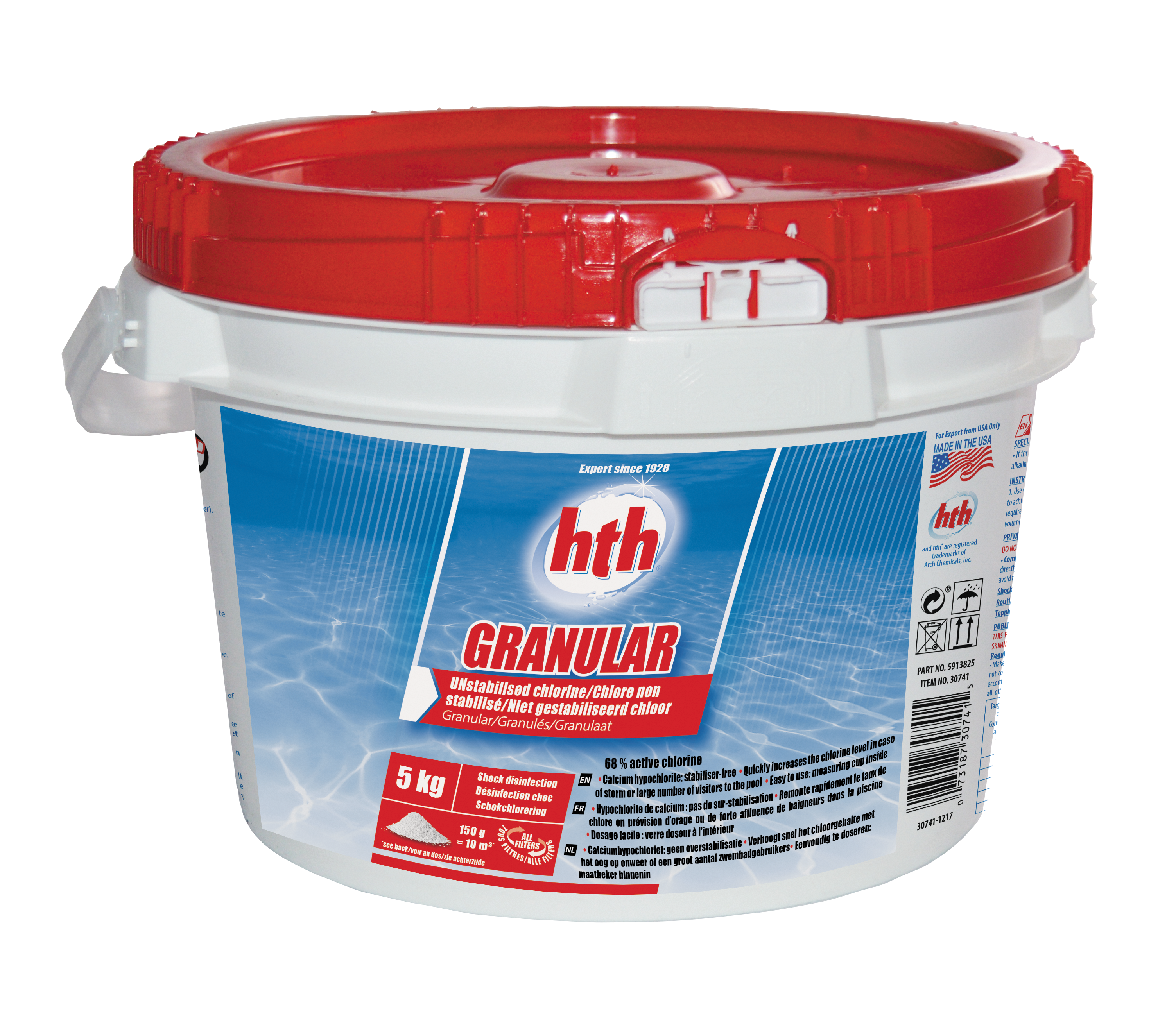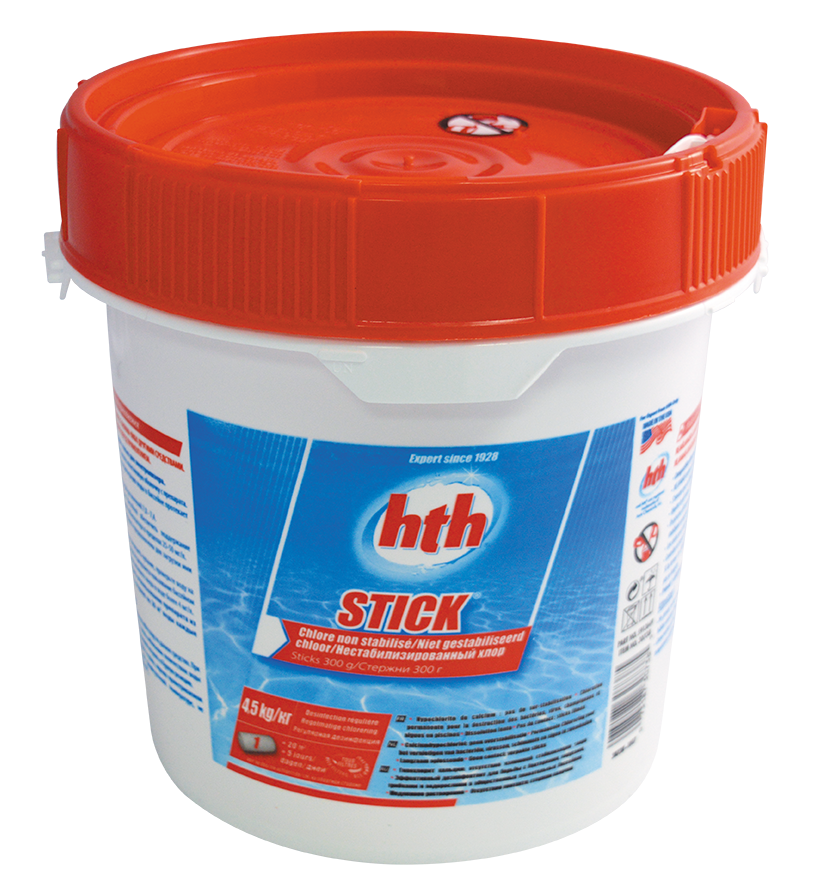Over-Stabilised Water
Over-Stabilised Water
Summer is in full swing: you opened your pool in April or May and you have enjoyed it since with your children and friends.
Water treatment has become a simple routine for you: a chlorine tab per week, a shock treatment every fortnight, a little clarifier...
And yet, in June or July your pool turns green and algae starts to develop! You apply a shock treatment, add an anti-algae product, to no avail.
You ask your specialised retailer for advise: no other solution than to empty out your swimming pool! Your children are stamping their feet, your friends are disappointed: no swimming this weekend!
What is over-stabilisation?
In the middle of the season, when you have used a certain quantity of stabilised chlorine, an excessive amount of stabiliser (cyanuric acid) remains in the water. Thus, the disinfectant action of the chlorine molecules is slowed down and even “blocked”, which enables micro-organisms to proliferate. The water becomes green and “turns“: this is the over-stabilisation phenomenon.
If you then add stabilised (shock) chlorine, you aggravate the problem instead of solving it, as you are increasing even more the quantity of stabiliser, as the latter does not dissipate and remains permanently in the water.
How to recognise an over-stabilised pool?
The water “turns” and becomes green as algae starts to develop, since the chlorine no longer destroys it.
Note that the water loses its disinfectant effect, i.e. viruses and fungi present in the water are no longer destroyed properly and start to develop. In short, this is not a swimming pool in which you would want your children to swim!
How to correct over-stabilised water?
The only solution is to remove the excess quantity of stabiliser by emptying out a large amount of the pool water (sometimes all the water) and adding fresh water. This solution is a hassle in the middle of the season and costly.
It is then preferable to use non-stabilised chlorine hth® (red range) as a preventive solution in order to avoid the over-stabilisation of your water.
To avoid any over-stabilisation risks, we recommend you use the hth® red range:
Shock disinfection
-
CORRECT GREEN OR CLOUDY WATER
In this case, it is best to act quickly!
hth® SHOCK® powder acts instantly thanks to its powder formula, which dissolves very quickly.
The product can be added directly into the pool, or the skimmer, with the filtration running in both cases.
It is especially powerful: with 75% active chlorine content, this is the most concentrated
calcium hypochlorite shock chlorine treatment on the market.
-
INCREASE THE CHLORINE CONTENT RAPIDLY
In this case, it is best to anticipate!
For example, when a large number of bathers are due, or a storm is brewing.
The granule formula of hth® GRANULAR guarantees a quick dissolution of the product.
No more over-stabilisation risk with this calcium hypochlorite shock chlorine treatment,
as with all the products of the hth® red range .
Regular disinfection
To avoid over-stabilisation issues, hth® has developed a specific range of non-stabilised chlorine products (calcium hypochlorite)
to destroy bacteria, viruses, fungi and algae in pool water.
hth® ADVANCED : 1st slow-dissolving CALCIUM HYPOCHLORITE tab
• Very effective product: formulated based on hth® SHOCK® powder
• Slow-dissolving: between 5 and 7 days
• Blue octagonal tab: limits confusion risks with isocyanurates.
• No disposable plastic film
1 tab = 20 to 25 m3 = 7 days
300 g filmed stick
1 stick = 20 m3 = 5 days
 hth® also offers a stabiliser product packaged separately (hth® STABILIZER) for outdoor pools
hth® also offers a stabiliser product packaged separately (hth® STABILIZER) for outdoor pools
To sum up, how to avoid over-stabilisation ?
• By regularly checking the stabiliser content in the water.
We recommend to maintain a stabiliser level in your water between 30 and 50 ppm*.
* Standard recommended by the Regional Health Agency (ARS) for commercial swimming pools
• By using non-stabilised chlorine (calcium hypochlorite)
If your pool is indoors, stabiliser is not needed.
If your pool is outdoors, we recommend you to only add the required dose of stabiliser.






